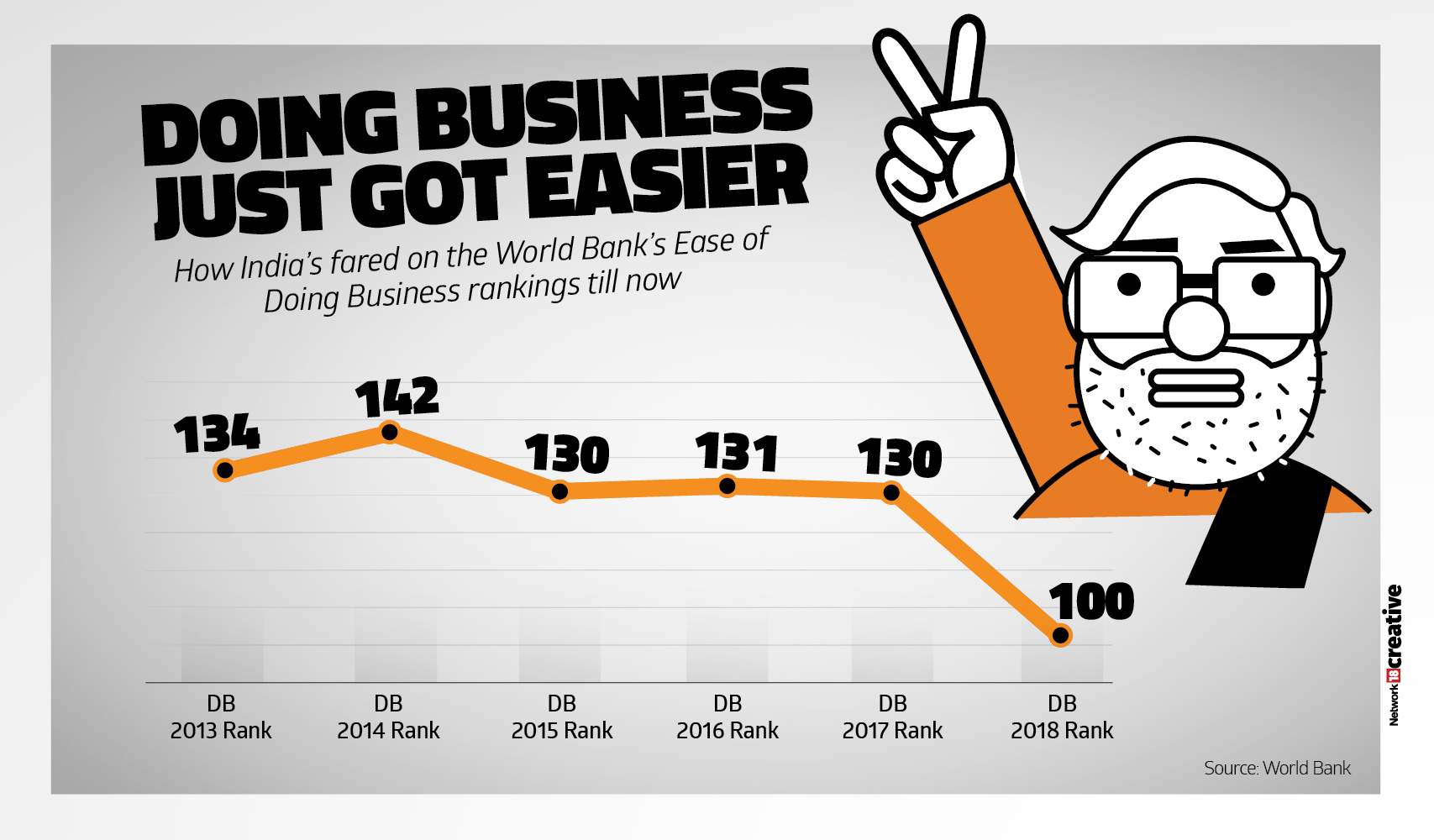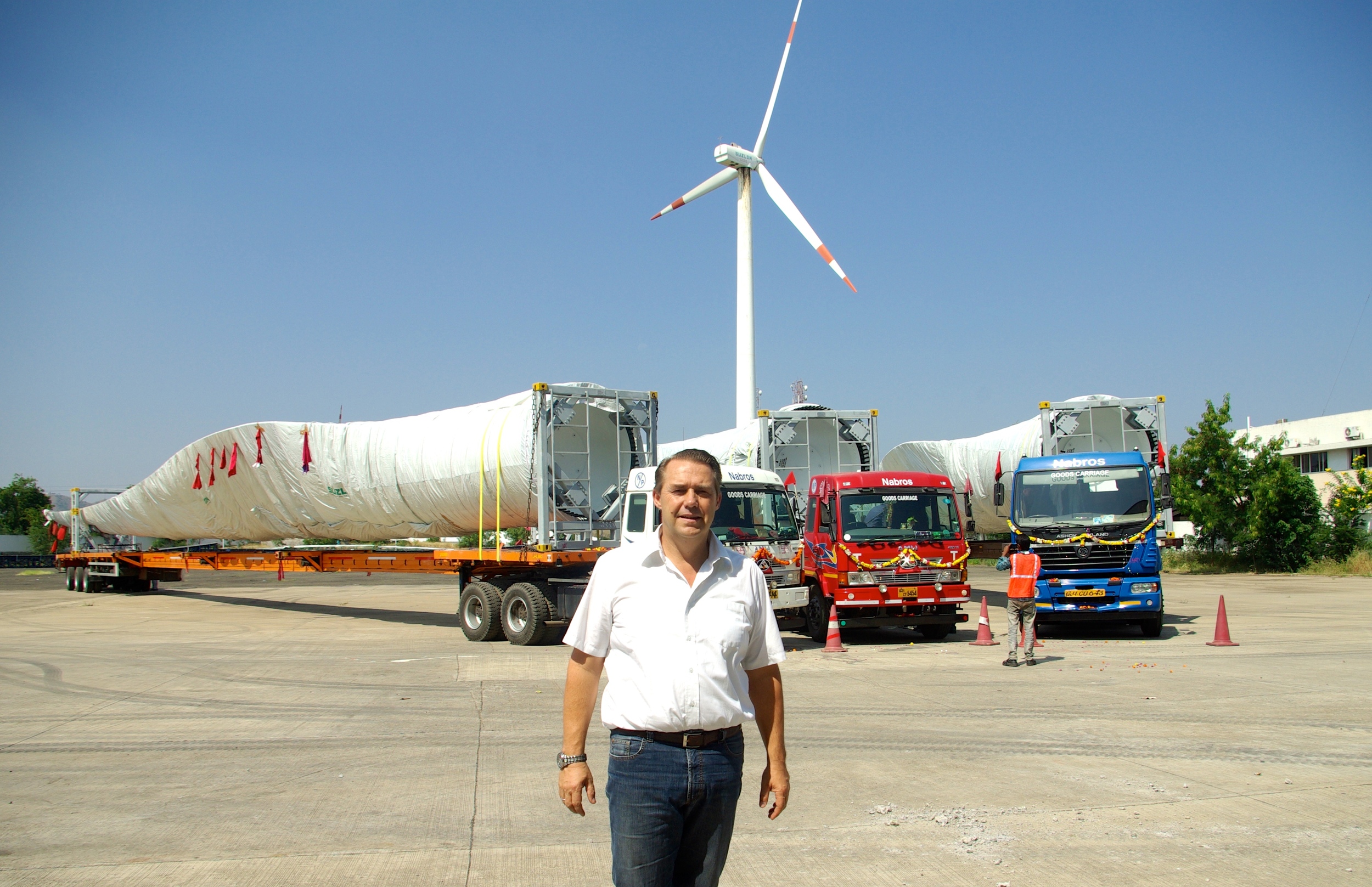Working in India is a joy - at least if you have a bit of an adventurous European merchant's spirit. Michel Koopman, who runs the Leela hotel in Gurgaon, is just such a person. "It's fun to work with Indians," Koopman says enthusiastically. "The fact that they speak English helps tremendously. Quite a difference from China. If you make a joke there, they don't understand you. With Indians, you can laugh."
Gosse Wielinga at the Suzlon factory in India (Photo: Suzlon)
Gosse Wielinga who works for the large Indian wind energy company Suzlon also has an "incredible time in India." Wielinga thrives in the informal corporate culture at family-owned Suzlon, which he compares to the Dutch polder culture.
Or take Jos van Haaren, former research leader at the Philips innovation campus, who recently returned to Eindhoven. During the interview, he seemed almost homesick for India. "I would have liked to have stayed longer," he said with regret in his voice.
Even hockey coach Paul van Ass, who was sacked after only five months as national coach of the Indian hockey team, has good memories of India. He hopes to do business there again.
Jos van Haaren at the Philips Innovation Campus in Bangalore (Photo: Berkeley - Haas)
Six tips to make working in India a joy:
1. Take young employees by the hand
"Indians are very ambitious, they fight to get ahead. You can see that at the baggage belt at the airport: everyone is in the lead. You can see it on the work floor as well. There are a lot of young people who are very driven. The trick is to take them by the hand and tap into their potential. That gives me great satisfaction. Gosse Wielinga, Suzlon Energy
2. Enjoy the game
"To make a good deal, you have to play the game Indian style. That means sometimes you have to say you have no time or not answer the phone. Then you play the difficult European, while your staff massage the other party in the meantime. This way of doing business can be frustrating in the beginning, but after a while you learn to enjoy the game. Then you become half an Indian." Gandert Roosen, Roosen Industries.
3. Use an interpreter
"Of course, many Indians speak excellent English, but even though you speak the same language, that doesn't mean you understand each other. An interpreter who knows both cultures can bridge the gap between Europeans doing business in India and their Indian executives, partners and/or employees." Gosse Wielinga, Suzlon Energy.
4. Give smart feedback
"Never publicly attack a manager. That is fatal. If you want to share critical ideas, do it in private. That is often appreciated and they usually do something with it." Gosse Wielinga, Suzlon Energy.
5. Set aside more time than usual to prepare properly
"Many foreigners who have been to India on business are dead tired when they get back on the plane to Europe. This is often because they do not take enough time in India. If you have an important meeting on Monday, fly the Friday before. That way you can acclimatise and appear fresh and sharp at your appointment." Gosse Wielinga, Suzlon Energy.
6. Be flexible
"In India, it is often not quite clear how things work. If that bothers you, working in India takes a lot of energy. But if you can deal with it, it's actually a lot of fun. As a foreign company or employee, you have to ask yourself whether you can thrive in such an environment." Jos van Haaren, Philips.
Realize effective collaboration and higher efficiency with your Indian team
Is your cooperation with your Indian employees going a bit awkwardly? Or are they not delivering the results you expected? With our online and offline group trainings we improve the performance of your team in Europe and India. Our training courses cover topics such as self-management, constructive feedback, team building, effective communication, dealing with mistakes and setbacks, strategy, planning and, of course, decision-making.
This is how we help achieve effective collaboration and higher efficiency. Find out more here:






